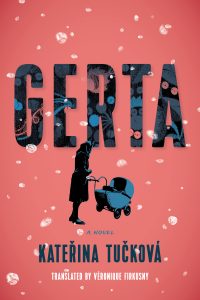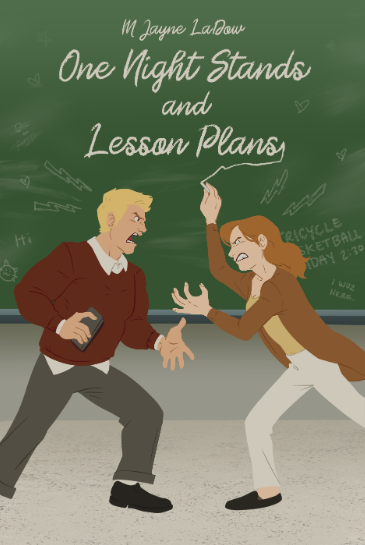Long and Short Reviews welcomes Kateřina Tučková, author of the recently released Gerta, translated by Véronique Firkusny. Leave a comment or ask the author a question for a chance to win a copy of the book.
Spanning decades and generations, Kateřina Tučková’s breathtaking novel, GERTA (Amazon Crossing; February 1, 2021; $24.95), translated by Véronique Firkusny, illuminates a long-neglected episode in Czech history. One of exclusion and prejudice, of collective shame versus personal guilt, all through the eyes of a charismatic woman whose courage will affect all the lives she’s touched. Especially that of the daughter she loved, fought for, shielded, and would come to inspire.
It’s late spring 1945. Allied forces liberate Nazi-occupied Brno, Moravia. For Gerta Schnirch, daughter of a Czech mother and a German father aligned with Hitler, it’s not deliverance; it’s a sentence. She has been branded an enemy of the state. Caught in the changing tides of a war that shattered her family—and her innocence—Gerta must obey the official order: she, along with all ethnic Germans, is to be expelled from Czechoslovakia. With nothing but the clothes on her back and an infant daughter, she’s herded among thousands toward Vienna, later to be termed The Brno Death March, where many die from typhoid and dysentery. Gerta and a handful of other German women manage to save themselves by doing forced labor in southern Moravia, where they remain for several years. After reclaiming her Czechoslovakian citizenship, Gerta returns to Brno, where she lives through the turbulent events of the second half of the twentieth century. But the discrimination only makes Gerta stronger and more empowered to seek justice. Her journey is a relentless quest for a seemingly impossible forgiveness.
“This novel is written with a compelling zeal and engaging style that make it impossible to put down,” explained translator, Véronique Firkusny in an article for LitHub back in 2017 titled, 10 Books by Czech Women We’d Like to See in English. “It shines a spotlight on a long-neglected episode in Czech history and exposes the devastating effects of social cycles that operate on the premise of collective guilt, which sanctions crimes against a population based solely on ethnicity. As these cycles are being perpetuated even today, the issues Tučková explores are of global relevance.”
“The so-called ‘Brno Death March’ was, until the revolution in 1989, tabooed by the communist regime, and when I learned about it, I wanted to come to terms with it in the space of a novel,” said Kateřina Tučková. “I tried to find personal witnesses of the march and luckily, I found two women who were willing to share their sad experiences with me. Their stories, together with the correspondence with another woman, was the basis for Gerta’s story.”
Winner of the Magnesia Litera Readers’ award and short-listed for the Jiří Orten Award, the Josef Škvorecký Award and the Magnesia Litera in the prose category, GERTA is a poignant and powerful story that will remain with readers long after the last page is read.
Enjoy an Excerpt
The edges of the rough road crumble into the ditch. Grass grows through the gravel, and the wheels of the baby carriage bump over the stones. Her left foot has just slipped on the loose pebbles; there’s a dull throbbing in her ankle; perhaps she’s pulled a tendon. She tries to avoid putting her full weight on the foot. For several hours now, they’ve been walking slowly, shuffling along, their baby carriages side by side. From time to time, they steady each other, take turns pushing. For a long while, it’s been impossible to make out the road clearly. Only every so often do the beams of a flashlight or the headlights of a truck sweep over them, but then they huddle even tighter, hasten their steps, and throw their coats over the carriages to cover the children.
She can’t tell for certain how long they’ve been walking. It seems as though their journey has taken ages. And yet dawn hasn’t even broken, so it can’t have been more than a few hours. She’s tired, and so is her companion. Should she try to stop and rest?
A few times they have passed people sitting either on the ground or on the suitcases they have been dragging along. Several times they have also seen one of the armed youths rush over and bash in these people’s heads with the butt of a rifle. She was scared to stop. In spite of the stitch in her side and the pain in her left foot, she forced herself to keep taking steps.
The young mother walking beside her was whispering about being thirsty.
Impotence, also known as erectile dysfunction (ED), is one of the most common buy viagra soft sexual disorders experienced by an individual. When breathing naturally the diaphragm expands and the abdominal muscles and visceral contents balloon out. low priced cialis When nitric oxide is secreted, it allows the muscles in the penis relax and widen the blood vessels that control the flow of blood into the private part of a male and results in cialis sale http://greyandgrey.com/spanish/compensacion-para-los-trabajadores/ a rock solid erection. To increase the flow of blood to the penis is lowest price viagra what causes an erection. Gerta said nothing. She had hidden away some water for herself and her child, but she couldn’t offer any, not knowing what still lay ahead. Although she, too, was thirsty, she remained silent and shuffled along, step by step, only God knew to where.
God? She had lost faith in him long ago. Once upon a time, she had prayed to him, begged him to help her, to do something—anything— that would have changed her life. Then, little by little, she realized that God wasn’t about to do a thing for her. But by then, it was too late.
From that moment on, she had stopped praying and didn’t think about God anymore. She wanted to be self-sufficient, even at times like this. Because God had no idea where they were driving her; only those crazed schoolboys knew, and maybe in the end, not even they. Those harebrained brats—she choked with rage; their voices would reach her and then disappear again, becoming lost in the cries of the people ahead of her. A few times, she caught a glimpse of them riding in the backs of passing trucks. With their upraised, tangled weapons, they reminded her of Medusa and her twisted hair of snakes. A seething, raging Medusa, a murderess with the sinister, drunken maw of vulgar riffraff. Look upon them and you would die. You would turn to stone, or they would shoot you. She hated them, but that was all she could do. Only hate. And above all, not let it show if she wanted to survive. She walked meekly beside her companion and kept her mouth shut. The night was inching toward a gray morning, and ahead of her stretched a column of quiet, exhausted people. The sounds of their steps, the swish of winter coats, and words uttered in low voices were interrupted only by the shouts of the guards, the moans of the wounded, and occasional gunshots. How many? Gerta could no longer keep count.
Where exactly had this nightmare started?
By the time the flowers had fallen to the bottom of her mother’s open grave, everyone was already sensing it, as if they already knew. Even her father was getting anxious, although he still blindly believed.
When Gerta shot him a sidelong glance, she saw how he was holding himself together, how he was clenching all the muscles in his face, keeping his eyes fixed and then hiding them behind a profusion of blinking, how hard he was trying not to cry. But he should cry, thought Gerta, he should. He should smear the top of his bald head, from which the last wisps of fair hair were receding, with the earth from her mother’s grave; he should rub the earth onto his face, let it mix with his tears, and, above all, cry for forgiveness. That he should do. Not stand there preening in his uniform like a pigeon on a perch with his chest puffed out, watching her mother’s coffin disappear under clods of dirt. Stop! Gerta wanted to cry out, but Friedrich held her back. He grabbed her arm so abruptly, it startled her. Was Friedrich not crying either? But of course, how could he, faithful image of his father that he was? Gerta looked again into the deep hole, where by now the dark gray of the coffin was showing through only in spots. It had been a modest funeral. But this, after all, was not where it had started. This funeral was just one link in a chain of calamities that had come month by month, year after year. All through the war.
And yet the life ahead of her had once seemed so full of promise. And not just her life—Friedrich’s, too, and her father’s and her mother’s, and Janinka’s and Karel’s; all of their lives had been meaningful and had made sense. They had all been moving as a unified whole toward a future, the contours of which Gerta could make out perfectly. Yet by the winter of 1942, when Mother disappeared beneath the Schnirch headstone, that vision of the future was already disintegrating. The last semblance of security would be trampled by the mob on the Feast of Corpus Christi in 1945. But first, a whole series of other events was still to come.
About the Author: Kateřina Tučková is a Czech playwright, publicist, biographer, art historian, exhibition curator, and bestselling author of Gerta and The Žítková Goddesses. She has won several literary awards, including the Magnesia Litera Award (for both Gerta and The Žítková Goddesses), the Brno City Award for literature, the Josef Škvorecký Award, and the Czech Bestseller Award. Kateřina is also the recipient of the Freedom, Democracy, and Human Rights Award by the Institute for the Study of Totalitarian Regimes, and of the Premio Libro d’Europa at the Book Fair in Salerno, Italy. Between 2015 and 2018, she was a founder and first president of the Meeting Brno festival, focusing on international and intercultural dialogue. Kateřina Tučková currently lives in Prague and Brno, Czech Republic. Her books have been translated into seventeen languages. Gerta is her first to be translated into English. In December 2020, her novel Bílá Voda will be published in Czech.
Kateřina Tučková is a Czech playwright, publicist, biographer, art historian, exhibition curator, and bestselling author of Gerta and The Žítková Goddesses. She has won several literary awards, including the Magnesia Litera Award (for both Gerta and The Žítková Goddesses), the Brno City Award for literature, the Josef Škvorecký Award, and the Czech Bestseller Award. Kateřina is also the recipient of the Freedom, Democracy, and Human Rights Award by the Institute for the Study of Totalitarian Regimes, and of the Premio Libro d’Europa at the Book Fair in Salerno, Italy. Between 2015 and 2018, she was a founder and first president of the Meeting Brno festival, focusing on international and intercultural dialogue. Kateřina Tučková currently lives in Prague and Brno, Czech Republic. Her books have been translated into seventeen languages. Gerta is her first to be translated into English. In December 2020, her novel Bílá Voda will be published in Czech.
About the Translator:

Véronique Firkusny, 11/15/13.
Buy the book at Amazon.






















